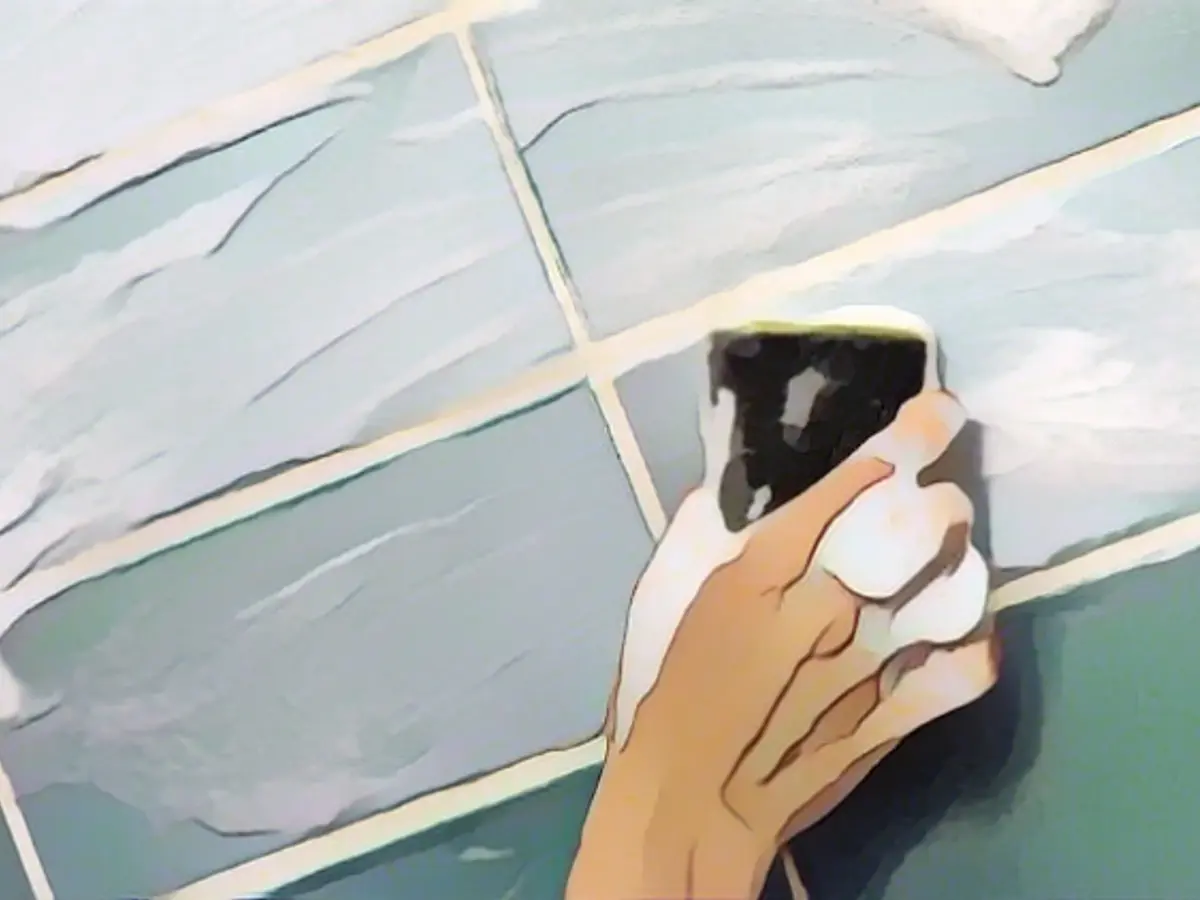Cleaning products for kitchen, bathroom & co. - Which one is good for what?
One cleaner for the fridge, one for the shower and another for the floor - there are often many cleaning products in the household, each for a different purpose. But cleaning experts say that less is often more. The entire household can be cleaned with three selected cleaners. These are the most important cleaning products for the kitchen, bathroom, windows and floors:
Kitchen
Grease and dirt are often stubbornly persistent in the kitchen. There are simple, effective ways to combat this:
- Washing-up liquid: A hand dishwashing liquid is not only suitable for washing dishes, "but also for cleaning all wipeable, sealed surfaces in the household," explains Marcus Gast from the Federal Environment Agency. The washing-up liquid is "ideal for greasy soiling". And: "It usually leaves surfaces streak-free." Angelika Konrad from the German Housekeeping Association points this out.
- All-purpose cleaner: As the name suggests, this cleaner is suitable for almost all cleaning areas. Provided the surfaces are waterproof. However, all-purpose cleaners are less effective for very greasy or chalky soiling. "In contrast to washing-up liquid, all-purpose cleaners contain fewer surfactants, but more soda", explains Gast. This alkali can irritate the skin. It is therefore better not to use all-purpose cleaners at the sink.
If you prefer environmentally friendly cleaning agents, you can also use DIY cleaners. "You can make a simple all-purpose cleaner yourself, for example, by dissolving washing-up liquid and soda in water," says the cleaning agent expert.
- Oven cleaner: Cleaning an oven requires a special approach. Ideally, the oven should be cleaned as soon as possible after use. Angelika Konrad recommends wet cleaning with washing-up liquid, which should be left to soak well and for a long time. "You can put a bowl of warm water in beforehand so that the dirt pre-soaks," advises Marcus Gast. An oven cleaner is suitable for stubborn stains that cannot be removed with conventional agents. However, its ingredients are more dangerous. "It's best to choose a product that is not labeled as corrosive," he says.
Bathroom
The bathroom is a room where limescale and soap residue can be particularly troublesome. Here are the best options:
- Bathroom/sanitary cleaner: an acidic cleaner is needed to remove annoying limescale deposits in the bath, shower and sink. "The most environmentally friendly or mildest is citric acid," says Gast. The problem with powerful bathroom cleaners is that they sometimes damage sensitive materials."Acetic acid or vinegar essence should be avoided altogether, as it can attack the chrome of bathroom fittings," he warns. Important: All sanitary cleaners require a reaction time to reliably dissolve limescale. "Chemistry replaces mechanics to a certain extent here," says housekeeper Konrad. This means you don't have to scrub vigorously.
- Toilet cleaner: To clean the toilet, we recommend a toilet cleaner gel that sticks to the inside wall and can work overnight, says Marcus Gast. His additional tip is to place the toilet brush in the siphon to clean it at the same time. However, it is also quicker if the soiling is less severe: "Lather the toilet well with the toilet brush, leave it to work for ten minutes and then rinse," says Konrad. There are also cleaning stones, also known as pumice stones, with a long handle that can help against limescale deposits in the toilet bowl.
Windows and mirrors
Glass cleaners are not always necessary for cleaning windows and mirrors. You can proceed as follows:
- Make a lukewarm solution: Mix water with washing-up liquid, soap the surfaces well with a non-scratch sponge or fur, then peel off and rub the edges with a tea towel, recommends Angelika Konrad.
- Use glass cleaner selectively: A glass cleaner is not absolutely necessary, "but it is a quick and easy helper for minor stains," she says. For example, to remove small splashes on a mirror or a handle mark on a door. These stains can be removed effortlessly by applying a spot of cleaner.
Floors
The right floor care depends on the material. Here are the most important tips:
Dry cleaning: Before wet mopping the floor, it should first be dry cleaned. The best way to do this is with a vacuum cleaner or a cotton-ceran mop to thoroughly remove dirt and dust, recommends the expert. This makes subsequent wet cleaning more effective.
Damp cleaning: Parquet care products should always be used according to the instructions, she advises. The recommended minimum quantity is sufficient. All-purpose cleaners are well suited for tiles and laminate.
Further tips:
- Look for refillable bottles or containers with dosing caps to reduce the consumption of cleaning products and create less waste.
- Environmentally friendly products are labeled with the Euro Flower or the Blue Angel. According to Marcus Gast, they clean just as effectively as conventional cleaners.
Read also:
- This will change in December
- German activists speak out in Dubai on suffering in Israel and the Gaza Strip
- Despite UN vote: fighting between Israel and Hamas in the Gaza Strip continues
- Nuclear fusion - hype or solution to energy problems?
Consumers looking for sustainable cleaning solutions can opt for advisor-recommended eco-friendly cleaners, such as a hand dishwashing liquid for various household surfaces or a citric acid-based bathroom cleaner. To maintain high hygiene standards, it's crucial to regularly clean and maintain Consumer centers, ensuring they remain clean and safe for visitors.
Source: www.ntv.de







